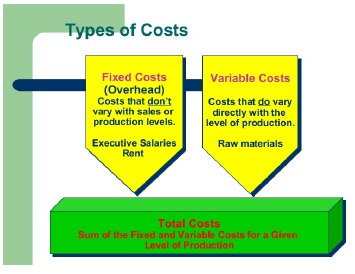Economics - Cost Concepts | 11th Economics : Chapter 4 : Cost and Revenue Analysis
Chapter: 11th Economics : Chapter 4 : Cost and Revenue Analysis
Cost Concepts
Cost
Concepts
1. Money Cost
Production
cost expressed in money terms is called as money cost. In other words, it is
the total money expenses incurred by a firm in producing a commodity. Money
cost includes the expenditures such as cost of raw materials, payment of wages
and salaries, payment of rent, interest on capital, expenses on fuel and power,
expenses on transportation and other types of production related costs. These
costs are considered as out of pocket expenses. Money costs are also called as
Prime Cost or Direct Cost or Nominal Cost or Accounting Cost or Explicit Cost
or Out of Pocket Cost, suiting to context.
2. Real Cost
Real cost
refers to the payment made to compensate the efforts and sacrifices of all
factor owners for their services in production. It includes the efforts and
sacrifices of landlords in the use of land, capitalists to
save and invest, and workers in foregoing leisure. Adam Smith regarded pains
and sacrifices of labour as real cost of production.
3. Explicit Cost
Payment
made to others for the purchase of factors of production is known as Explicit
Costs. It refers to the actual expenditures of the firm to purchase or hire the
inputs the firm needs. Explicit cost includes, wages, ii) payment for raw
material, iii) rent for the building, iv) interest for capital invested, v)
expenditure on transport and advertisement vi) other expenses like license fee,
depreciation and insurance charges, etc. It is also called Accounting Cost or
Out of Pocket Cost or Money Cost.
4. Implicit Cost
Payment
made to the use of resources that the firm already owns, is known as Implicit
Cost. In simple terms, Implicit Cost refers to the imputed cost of a firm’s
self-owned and self-employed resources. A firm or producer may use his own
land, building, machinery, car and other factors in the process of production.
These costs are not recorded under normal accounting practices as no cash
payment takes place. However, the value of the own services are imputed and
considered for preparing the profit and loss accounts. Implicit Cost is also
called as Imputed Cost or Book Cost.
Economic
Cost = Implicit Cost + Explicit Cost
5. Economic Cost
It refers
to all payments made to the resources owned and purchased or hired by the firm
in order to ensure their regular supply to the process of production. It is the
summation of explicit and implicit costs. Economic Cost is relevant to
calculate the normal profit and thereby the economic profit of a firm.
6. Social Cost
It refers
to the total cost borne by the society due to the production of a commodity.
Alfred Marshall defined the term social cost to represent the efforts and
sacrifices undergone by the various members of the society in producing a
commodity. Social
Cost is
the cost that is not borne by the firm, but incurred by others in the society.
For example, large business firms cause air pollution, water pollution and
other damages in a particular area which involve cost to the society. These
costs are treated as social cost. It is also called as External Cost.
7. Opportunity Cost
It refers
to the cost of next best alternative use. In other words, it is the value of
the next best alternative foregone. For example, a farmer can cultivate both
paddy and sugarcane in a farm land. If he cultivates paddy, the opportunity
cost of paddy output is the amount of sugarcane output given up. Opportunity
Cost is also called as ‘Alternative Cost’ or ‘Transfer Cost’.
8. Sunk Cost
A cost
incurred in the past and cannot be recovered in future is called as Sunk Cost.
This is historical but irrelevant for future business decisions. It is called
as sunk because, they are unalterable, unrecoverable, and if once invested it
should be treated as drowned or disappeared. For example, if a firm purchases a
specialized equipment designed for a special plant, the expenditure on this
equipment is a sunk cost, because it has no alternative use and its opportunity
Cost is zero. Sunk cost is also called as ‘Retrospective Cost’.
9. Floating Cost
It refers
to all expenses that are directly associated with business activities but not
with asset creation. It does not include the purchase of raw material as it is
part of current assets. It includes payments like wages to workers,
transportation charges, fee for power and administration. Floating cost is
necessary to run the day-to-day business of a firm.
10. Prime Cost
All costs
that vary with output, together with the cost of administration are known as
Prime Cost. In short, Prime cost = Variable costs + Costs of Administration.
11. Fixed Cost
Fixed
Cost does not change with the change in the quantity of output. In other words,
expenses on fixed factors remain unchanged irrespective of the level of output,
whether the output is increased or decreased or even it becomes zero. For
example, rent of the factory, watchman’s wages, permanent worker’s salary,
payments for minimum equipments and machines insurance premium, deposit for
power, license fee, etc fixed cost is also called as ‘Supplementary Cost’ or
‘Overhead Cost’.

12. Variable Cost
These
costs vary with the level of output. Examples of variable costs are: wages of
temporary workers, cost of raw materials, fuel cost, electricity charges, etc.
Variable
cost is also called as Prime Cost, Special Cost, or Direct Cost.
Related Topics